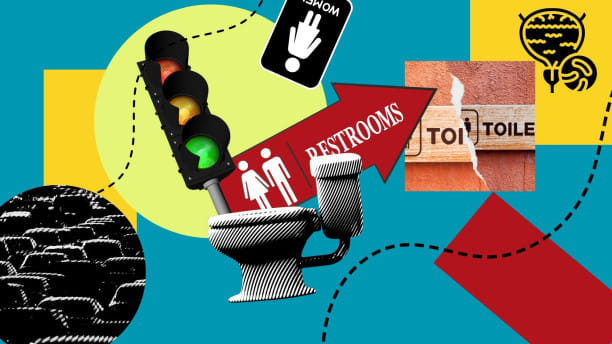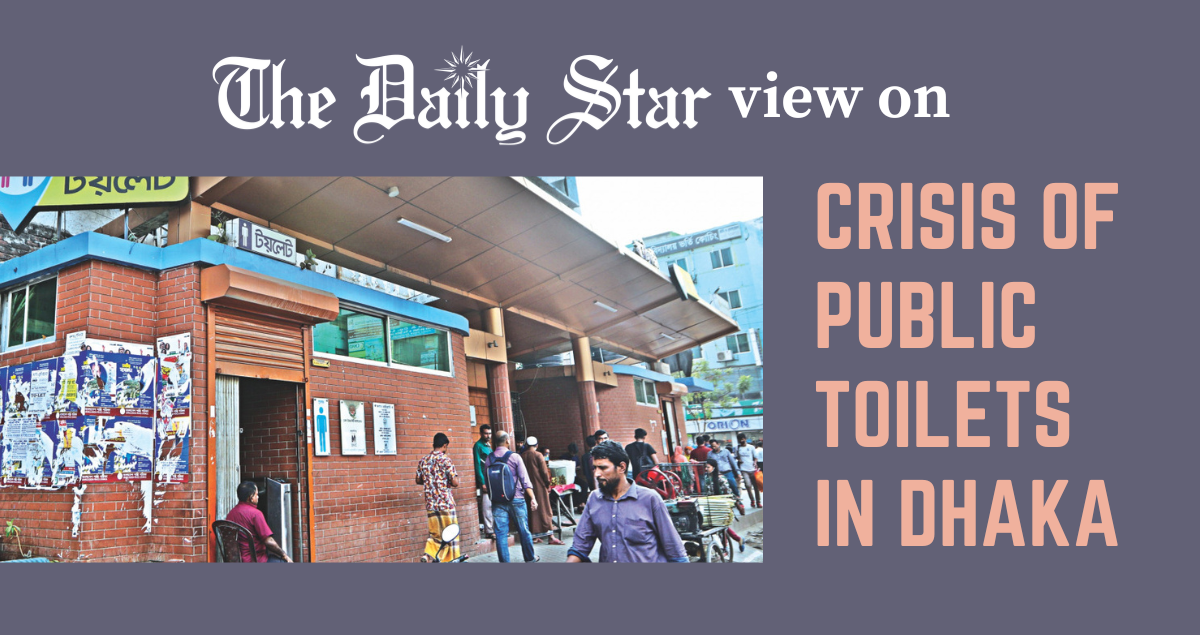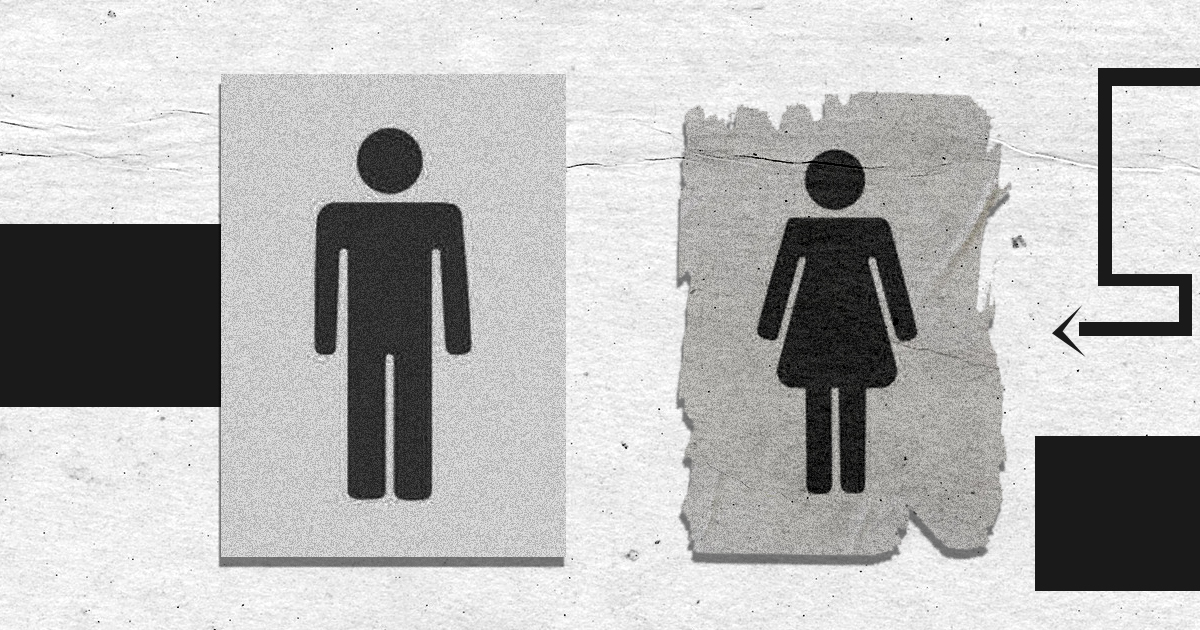Women should not have to struggle with a toilet crisis

World Toilet Day, observed on November 19 each year, highlights the global sanitation crisis. In countries like Bangladesh, it is essential to address how this issue disproportionately affects women in the workforce, particularly those who face long commutes. The severe lack of usable public toilets in Dhaka is a major concern, where over five million people commute daily but fewer than 100 toilets are available. Inadequate sanitation facilities are not just a matter of hygiene; they also hinder health and economic participation for millions of Bangladeshi women.
Numerous challenges, both on the supply- and demand-sides, impede women's labour market participation. Many of these challenges stem from entrenched patriarchal norms that marginalise women's needs in public discourse. Despite some progress in urban infrastructure, the lack of safe and private public toilets for women continues to undermine gender equality and public health, revealing a disregard for inclusivity. It remains an unaddressed challenge.
Statistically, Bangladesh's public sanitation facilities are grossly inadequate. A study of 52 public toilets found that only 45 were operational, and just 28 were properly maintained by local authorities or organisations like WaterAid. Maintenance is inconsistent, and many toilets, especially those intended for women, are poorly kept or unsafe. In urban centres like Dhaka, this shortage forces women to endure unsanitary conditions or avoid these spaces entirely. A recent study revealed that many women avoid drinking water at work to prevent using communal toilets, highlighting the severe impact of inadequate facilities on their health and well-being.
Access to safe sanitation and hygiene is one of the core principles of the United Nations under the Sustainable Development Goals (SDG). It is emphasised that access to clean toilets is a basic human right. However, the chaotic traffic situation in cities like Dhaka adds another layer of difficulty for women commuters. With severe congestion and long travel times, women often find themselves stuck in traffic for hours, unable to find a clean or safe restroom. As a result, many delay bathroom breaks and endure discomfort. This lack of accessible toilets during commutes not only inconveniences women but also creates serious health risks, highlighting the need for better urban planning and infrastructure.
The health consequences of inadequate sanitation are concerning. Around 60 percent of Bangladeshi women experience Urinary Tract Infection (UTI) at least once in their lifetime, with 20-30 percent suffering recurrent infections. The full scope of this issue is often underestimated, as data is not frequently updated. Poor access to clean toilets leads many women to delay urination, increasing the risk of UTIs, which is a leading cause of antibiotic misuse and contribute to antimicrobial resistance (AMR). Additionally, the medical costs of treating UTIs are substantial, as many women require repeated medical visits, diagnostic tests, and antibiotics. Between September 2016 and November 2018, around 39,000 patients visited the icddr,b diagnostic centre in Dhaka for urine culture and sensitivity tests, 73 percent of whom were women, with most tests revealing significant bacterial infections.
The lack of safe sanitation facilities also hampers menstruation management. Poor menstrual hygiene practices may lead to recurrent STI/ RTIs which increases the risk of cervical cancer. Good menstrual hygiene practices like not using sanitary napkins for more than 8 hours maximum and their proper disposal reduces the risk of such diseases. Despite this, public health policies rarely address these underlying issues. The absence of public toilets further limits women's economic opportunities, particularly for those in low-income or informal sectors such as agriculture, domestic work, and street vending. Bangladesh's policies have not adequately prioritised gender-sensitive sanitation solutions. Government efforts to improve public infrastructure often overlook the specific needs of women, focusing instead on generic solutions that fail to address privacy, safety, and hygiene.
To address this, the government must prioritise the development of clean, safe, and well-maintained public toilets, particularly in urban areas where women's workforce participation is highest. By allocating resources to improve public sanitation, Bangladesh can empower women, improve public health, and advance its SDG 2030 Agenda. This includes investing in gender-sensitive facilities, addressing the needs of low-income women's population, and offering affordable, community-led solutions.
Partnerships between NGOs, local authorities, and the private sector can bridge gaps in underserved areas. Bhumijo is such an initiative that provides hygienic, inclusive, and affordable sanitation solutions in Bangladesh. It offers smart toilets with additional services such as showers, clean drinking water, laundry, refreshments, and advertisement space, either through new constructions or the renovation and management of existing facilities. These services are accessible through a subscription or pay-per-use model. Today, the organisation operates 43 centres across Bangladesh, serving 10,000 people daily, including 15 percent women. With a dedicated team Bhumijo aims to expand to 100 facilities by 2025, serving 30,000 people daily, and ultimately scale to 1,000 facilities, serving 300,000 people per day by 2030 as required under SGD-6.
On World Toilet Day 2024, it is imperative that both the government and private actors unify to create environments that support dignity, health, and productivity for all women in Bangladesh. Civic society should aim to undertake more initiatives, as aforementioned, to facilitate this. Women's susceptibilities should not handicap them or refrain them from progressing economically. The deficit of governmental planning and policy development should not detrimentally affect them. As Bangladesh strives to build a more inclusive and equitable society, addressing women's sanitation needs in the workforce is a fundamental step.
Barrister Noshin Nawal is a member of the editorial team at The Daily Star and an environmental activist.
Views expressed in this article are the author's own.
Follow The Daily Star Opinion on Facebook for the latest opinions, commentaries and analyses by experts and professionals. To contribute your article or letter to The Daily Star Opinion, see our guidelines for submission.




 For all latest news, follow The Daily Star's Google News channel.
For all latest news, follow The Daily Star's Google News channel. 


Comments